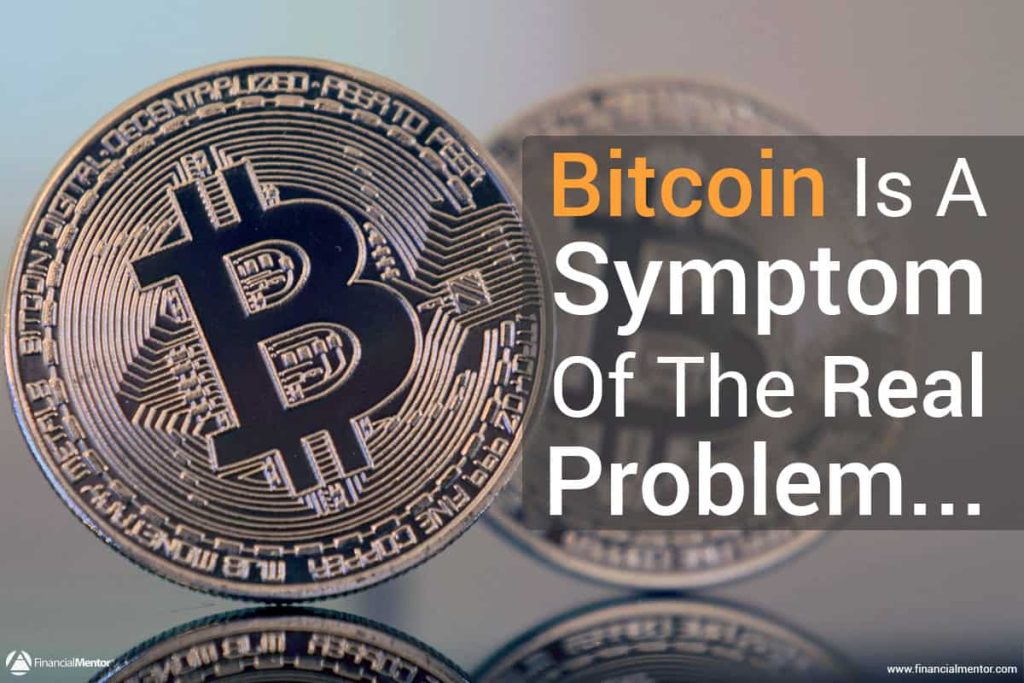Financial Intentionality: How Minimalism Can Redefine Your Monetary Priorities

Understanding Financial Intentionality
In a world overwhelmed by consumerism, financial intentionality emerges as a beacon for those seeking clarity in their monetary choices. Minimalism encourages individuals to reassess their financial habits, leading to profound insights about what truly matters. As the noise of advertisements bombards consumers daily, the need for a more focused and purposeful approach to finances has never been more crucial.
Why Embrace Minimalism?
Adopting a minimalist approach can transform not only your lifestyle but also your financial priorities. Consider these compelling reasons to embrace minimalism:
- Focus on Quality Over Quantity: Minimalism encourages individuals to purchase fewer, but higher-quality items. For example, instead of buying multiple fast-fashion garments, investing in a single well-made piece can save money in the long run, as it is less likely to wear out quickly.
- Reduce Financial Stress: Simplifying your possessions can lead to a more manageable financial situation. When you declutter your home, you often declutter your mind as well. Fewer items mean less upkeep, which can translate into lower costs for maintenance, storage, and insurance.
- Prioritize Experiences: Minimalism allows you to redirect funds from material possessions to enriching experiences, such as travel or education. Studies show that experiences, rather than possessions, contribute more significantly to long-term happiness. Instead of spending money on the newest gadgets, consider investing in a memorable trip that broadens your horizons or in a class that enhances your skills.
Reassessing Monetary Priorities
With minimalism, you can redefine what success means financially. This paradigm shift involves aligning your spending habits with your core values and long-term aspirations. Understanding what you truly value helps clarify where to allocate your resources. For instance, if family time is a priority, you might prefer to save for a family reunion rather than a luxury car.
By concentrating on intentional financial decisions, you pave the way for greater savings and investments. Many individuals find that consciously tracking their expenses leads to surprising insights. Apps designed for budget management can highlight unnecessary expenditures, allowing you to reallocate those funds to savings or investments that align with your goals.
As we delve deeper into this topic, you’ll discover how embracing a minimalist lifestyle can lead to not just a simpler existence, but also a more rewarding financial journey. The intersection of minimalism and financial intentionality may hold the key to a liberated financial future, paving the way for a life that prioritizes values over possessions and experiences over expenditure. By reshaping your financial behavior, you can build a holistic lifestyle that reflects your true self. Embracing this intentionality isn’t just a choice—it’s a journey towards discovering the essence of financial freedom.

DIVE DEEPER: Click here to discover how simplicity can enhance your relationships</
Aligning Your Financial Choices with Your Values
As you embark on the path of financial intentionality, it becomes essential to reflect on your core values and how they dictate your financial decisions. This introspection not only reveals what you cherish but also assists in determining where your money should be allocated. In today’s fast-paced world, consumers easily find themselves swept away by marketing tactics that entice them to buy into the notion that happiness comes with ownership. However, minimalism encourages individuals to pause and question whether each purchase aligns with their *true self* or merely fills a temporary void.
The Benefits of Intentional Spending
Intentional spending, a cornerstone of minimalism, can lead to several financial advantages. One of the key benefits is enhanced financial clarity. By methodically evaluating each financial commitment against your values, you begin to notice patterns in your spending. This practice can shed light on expenses that are not serving you well, creating opportunities for adjustments that can be transformative. Here are some specific benefits of embracing intentional spending:
- Enhanced Savings Potential: As you eliminate unnecessary expenses, the extra funds can be redirected toward savings or investments, establishing a more secure financial future.
- Improved Financial Literacy: Engaging with your finances on a deeper level—like understanding your budget, investments, and debts—can enhance your overall financial knowledge, empowering you to make smarter decisions.
- Increased Self-Discipline: Being intentional about your expenditures fosters self-control, allowing you to resist impulsive purchases and focus on long-term goals instead of short-term gratification.
Creating a Budget with Intent
Developing a budget that embodies your new financial philosophy requires careful consideration of your income against your most valued priorities. Start by identifying essential expenses like housing, groceries, and utilities, followed by budgeting for experiences or items that reflect your values—such as vacations, hobbies, or educational pursuits. Additionally, this is an opportunity to distinguish between needs and wants, ensuring that your financial decisions mirror your values.
Once your budget is established, consider utilizing tools and apps designed for budgeting and financial tracking. These resources can help you stay accountable, provide insights into your spending habits, and promote ongoing reflection about your financial intentions. It’s almost like having a financial coach available at your fingertips, guiding you towards a future where your values inform your monetary choices.
As you continue to explore the principles of financial intentionality through minimalism, you are beckoned toward a financially liberated life—a life that not only frees you from excess burden but also enriches your connection to what matters most. By engaging thoughtfully with your finances, you can craft a narrative that prioritizes your financial well-being and leads to a fulfilling lifestyle defined by intention rather than impulse.
| Category | Advantages |
|---|---|
| Reduced Expenses | By focusing on what truly matters, individuals can minimize wasteful spending, leading to significant savings. |
| Better Investment Choices | Financial intentionality encourages thoughtful decisions in investments, aligning them with personal values and long-term goals. |
Embracing the concept of financial intentionality through minimalism elevates one’s approach to managing money by stripping away the excess and focusing on priorities that matter. Adopting this mindset can extend beyond merely reducing clutter to fostering a more meaningful interaction with expenditures.A profound aspect of minimalism is the ability to accurately assess needs versus wants. By gaining clarity on essential purchases, individuals often find they redirect funds towards more lucrative or necessary investments. This strategic alignment brings about an invigorating sense of purpose and satisfaction, avoiding the trap of superficial spending habits.Additionally, minimalism promotes the notion of mindful financial planning. Through meaningful budgeting that highlights priorities, individuals will likely uncover opportunities to invest in self-improvement, sustainability, or future financial security, thus creating a harmonious relationship with their monetary choices.In conclusion, financial intentionality not only redefines monetary priorities but also fosters a more enriched life experience centered around genuine fulfillment rather than excessive consumption. This perspective prompts a deeper investigation into how each financial decision fits into a larger life narrative. The potential for growth and abundance in embracing these values is vast and ever-evolving.
DISCOVER MORE: Click here to uncover the benefits of minimalist aesthetics
Transforming Financial Habits with Minimalism
Financial intentionality through minimalism not only changes how you spend but can also lead to a profound transformation in your financial habits. By stripping away the unnecessary, you create space for more meaningful financial activities that align with your values. This shift can affect everything from how you save and invest to your approach towards debt.
Redefining Savings Strategies
Adopting a minimalist mindset encourages a fresh take on savings strategies. Rather than focusing solely on the accumulation of wealth, reflect on the purpose behind your savings. Are you saving for a vacation that brings joy, a home that offers stability, or an investment in education that fosters growth? By targeting your savings towards specific goals, you enhance your motivation and make the process more fulfilling.
Consider implementing the 50/30/20 rule, a simple yet effective budgeting method where 50% of your income is earmarked for needs, 30% for wants, and 20% for savings or debt repayment. This framework encourages intentionality by allowing you to prioritize what truly matters and ensure that you’re not hoarding money unnecessarily. Just as minimalism helps declutter your physical possessions, applying this principle to your finances liberates you from superfluous financial commitments, allowing for a more spacious approach to savings.
Conscious Investment Decisions
Investing is often viewed as purely a financial activity, but with minimalism, the process becomes a reflection of personal values. As you strive to invest intentionally, focus on companies and funds that align with your ethical beliefs—be it sustainability, social responsibility, or technological innovation. The rise of impact investing illustrates how investors are prioritizing not just financial returns, but also measurable social or environmental benefits. This growing trend allows you to harness the power of your money to support causes you care about while building your portfolio.
Additionally, educate yourself on the principles of index funds and ETFs. These investment vehicles generally offer lower fees and promote diversification, which aligns with a minimalist strategy of simplifying complexity in investing. The lower costs mean you can redirect funds towards the areas of your life that align with your values, rather than losing them in high fees or unnecessary trading.
Managing Debt with Intentionality
Another crucial element of financial intentionality in the context of minimalism is how you manage and understand debt. Rather than viewing debt as a burden, minimalism encourages re-assessing its role in your life. Is your debt funding something aligned with your core values, such as education or a business that impacts your community positively? If not, consider strategies to eliminate this debt—focusing on paying off high-interest loans first can save you money and frustration.
Furthermore, approach debt repayment with the same intentionality you apply to spending and saving. Set clear, attainable goals for paying down debt, and continually evaluate your progress to keep your motivations intact. Using a snowball or avalanche method for repayment can inject momentum into the process, leading to a rewarding sense of accomplishment as debts are eliminated.
As you navigate the financial landscape through the lens of minimalism, you’ll find that each decision resonates more deeply with who you are and what you value. This approach not only promotes financial stability but also fosters a sense of control and purpose that often gets lost amidst the noise of consumer culture.
DIVE DEEPER: Click here to learn more</a
Conclusion: Embracing Financial Intentionality through Minimalism
In a world saturated with consumerism and financial noise, financial intentionality propelled by minimalism offers a refreshing pathway toward a more meaningful relationship with money. By prioritizing simplicity, you not only diminish clutter in your financial life but also enhance your ability to concentrate on goals deeply aligned with your core values. This journey infuses joy and purpose into your savings strategies, investment decisions, and debt management.
Redefining your monetary priorities means embracing the notion that wealth is not merely about accumulation but about making wise choices that resonate with personal aspirations. By utilizing practical frameworks like the 50/30/20 rule, you systematically channel your resources toward what genuinely matters, whether it’s creating memories through travel or investing in education. Adopting a minimalist approach to investing encourages you to align your portfolio with companies that reflect your ethical beliefs, lending your financial power to causes you care about.
Moreover, changing your perspective on debt from a burden into a strategic tool empowers you to take control, enabling you to make intentional decisions about repayment. This holistic approach to financial management ultimately fosters a sense of control, stability, and satisfaction.
As you embark on this transformative journey, remember that embracing a minimalist mindset is not a one-time fixation but a continual practice. By making intentional financial choices, you pave the way for a more fulfilling life that transcends the confines of conventional wealth. Explore this philosophy further and discover how it can redefine your monetary landscape for the better.


